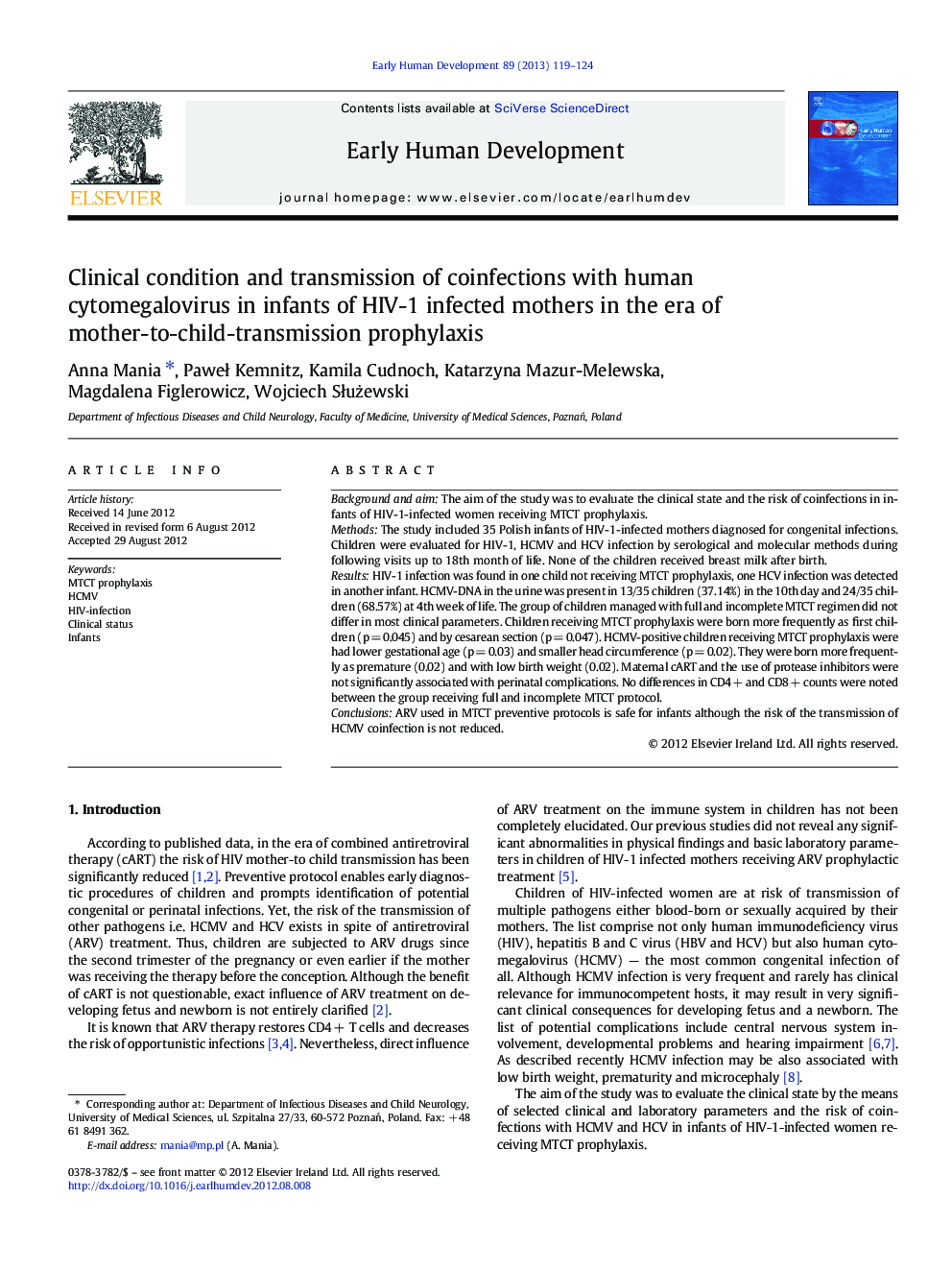| Article ID | Journal | Published Year | Pages | File Type |
|---|---|---|---|---|
| 3916741 | Early Human Development | 2013 | 6 Pages |
Background and aimThe aim of the study was to evaluate the clinical state and the risk of coinfections in infants of HIV-1-infected women receiving MTCT prophylaxis.MethodsThe study included 35 Polish infants of HIV-1-infected mothers diagnosed for congenital infections. Children were evaluated for HIV-1, HCMV and HCV infection by serological and molecular methods during following visits up to 18th month of life. None of the children received breast milk after birth.ResultsHIV-1 infection was found in one child not receiving MTCT prophylaxis, one HCV infection was detected in another infant. HCMV-DNA in the urine was present in 13/35 children (37.14%) in the 10th day and 24/35 children (68.57%) at 4th week of life. The group of children managed with full and incomplete MTCT regimen did not differ in most clinical parameters. Children receiving MTCT prophylaxis were born more frequently as first children (p = 0.045) and by cesarean section (p = 0.047). HCMV-positive children receiving MTCT prophylaxis were had lower gestational age (p = 0.03) and smaller head circumference (p = 0.02). They were born more frequently as premature (0.02) and with low birth weight (0.02). Maternal cART and the use of protease inhibitors were not significantly associated with perinatal complications. No differences in CD4 + and CD8 + counts were noted between the group receiving full and incomplete MTCT protocol.ConclusionsARV used in MTCT preventive protocols is safe for infants although the risk of the transmission of HCMV coinfection is not reduced.
